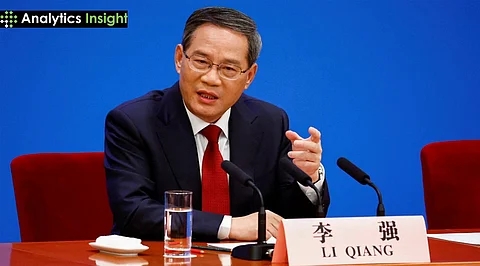

Li Qiang, born in July 1959, is the current Premier of China and one of the country's most influential leaders. A close confidant of Xi Jinping, he rose from humble beginnings in Zhejiang to lead China’s economic development. Known for his support of businesses and technological innovation, Li played a key role in transforming cities like Shanghai and now directs national policy. His rapid ascent to power, bypassing the traditional vice premier position, marks him as a political trailblazer in modern Chinese history.
Li Qiang grew up in a small town in Zhejiang, where his mother sold pork and his father worked for the government. He was partly raised by his grandmother and began working at a pump station before pursuing studies in farm machinery. However, he didn’t stop there; he continued to learn while taking on leadership roles, earning degrees in sociology, economics, and even an Executive Master of Business Administration (EMBA). Li's journey, from tool factories to prestigious universities, is one of perseverance and growth.
Li Qiang’s political journey began in the early 1980s when he joined the Chinese Communist Party (CCP) while working at a local irrigation station in Rui’an, Zhejiang. His early roles were modest, but he steadily rose through various county and provincial positions, earning a reputation for administrative efficiency. A significant turning point in his career came in 2004 when he became the chief of staff to then-Zhejiang Party Secretary Xi Jinping; a relationship that would later shape his political ascent.
In 2011, Li was appointed vice governor of Zhejiang and, by 2012, he was promoted to governor, where he advocated for reforms to support innovation and small businesses. In 2016, he was named Party Secretary of Jiangsu, China’s second-largest provincial economy, where he concentrated on high-tech development and attracting foreign investment.
In 2017, Li was appointed Party Secretary of Shanghai, China’s financial hub. During his tenure, he launched the STAR Market, which is China's equivalent to the NASDAQ, and oversaw the rapid approval of Tesla’s Gigafactory in Shanghai. Despite facing heavy criticism for the strict COVID-19 lockdowns in 2022, Li managed to maintain the trust of Xi Jinping.
In March 2023, Li was appointed Premier of China, becoming the second most powerful man in the country. Unusually, he skipped the traditional path of serving as vice premier, underscoring his strong alignment with Xi. As Premier, he has focused on reviving economic confidence, easing regulations on private tech firms, and encouraging global investment amid slowing growth.
Chinese Premier Li Qiang unveiled major AI initiatives promoting global cooperation, inclusive governance, and equitable access, positioning China as a global leader.
Li launched WACO in Shanghai to promote inclusive global AI governance. It challenges Western rule-making dominance by ensuring all countries, especially from the Global South, can shape AI standards focused on ethics, safety, openness, and equitable access to innovation.
Li emphasized the need for unified AI governance to replace fragmented global approaches. He called for consensus-based, balanced rules that secure AI development, ensure human control over AI systems, and establish Artificial Intelligence as a public good serving the whole of humanity.
Li introduced the ‘AI Plus’ strategy to embed Artificial Intelligence across sectors and support developing nations. China plans to share open-source AI tools, development experience, and digital resources via the Digital Silk Road to empower countries and close the global digital divide.
Recognizing tech barriers like chip shortages and talent restrictions, Li advocated for open innovation, international partnerships, and joint R&D. These efforts aim to overcome global AI bottlenecks and reduce reliance on Western-controlled technologies, fostering a more collaborative Artificial Intelligence ecosystem.
Li Qiang’s key decisions reflect his focus on driving economic reforms, empowering the private sector, and strengthening China’s global resilience.
2025
Growth & Consumption Drive: Reaffirmed a 5% GDP growth target, backed fiscal deficit of 4% of GDP, and prioritized boosting domestic consumption as a central growth engine.
Service Sector Stimulus: Initiated new subsidy schemes targeting travel, tourism, and sports to stimulate household spending and diversify demand.
Export Diversification Push: Urged exporters to diversify markets and integrate domestic and international trade amid mounting trade tensions.
2024
Institutional Reforms: Revived "Premier’s Work Meetings," curtailed State Council executive meetings to fortnightly, and launched special study sessions, strengthening his pragmatic governance tools.
Private Sector Protection: Warned local authorities against targeting private firms with arbitrary fines; pledged legal enforcement fairness to restore business confidence.
Pro-Opening Messaging: At development forums, emphasized openness and invited foreign investment, especially during post-zero-COVID economic recovery.
2023
Policy Delegation from Xi Jinping: Began handling critical economic policymaking roles, reflecting a shift in governance delegation from the Party toward the State Council.
Financial Oversight Role: Appointed head of the newly formed Central Financial Commission, expanding his role in macroeconomic coordination.
Li Qiang is not only shaping policy; he is shaping the future. From his grassroots rise in Zhejiang to his presence on the world stage, Li combines determination, vision, and strategy. He is redefining China's global role by advocating for ethical AI, economic resilience, and inclusive innovation. Whether leading reforms or bringing nations together on technology governance, Li Qiang is building a legacy that transcends borders, one where China leads not only with power but also with purpose in the AI-driven era.
